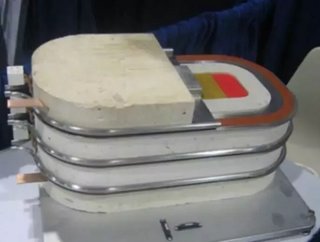Liquid Metal Battery Draws Bill Gates Investment

Liquid Metal Battery, a start-up company that has developed a unique superheated battery that liquefies the anode, cathode, and electrolyte common to most batteries to offer a longer lifespan. The technology was originally created by MIT through grants from the U.S. Department of Energy’s ARPA-E research agency and French oil giant Total. Microsoft founder Bill Gates has also invested in the new technology.
MIT materials energy professor and cofounder of Liquid Metal Battery, Donald Sadoway, claims the technology solves the problem of degrading electrodes seen in conventional batteries, which leads to a shortened lifespan. By eliminating solid metal components that tend to crack over time and under stress, the battery’s lifespan is improved. The technology utilizes molten salt layered between liquid metals to hold a charge.
Sadoway explains how he came up with the idea, “I looked at how aluminum smelters take a giant hall with liquid aluminum and fill it and I said, ‘That’s where you can get economy of scale.’ If you want a big battery, you build one big battery and you can’t do that with today’s technology. The scalability is going to be enabled by borrowing the lessons of 125 years of aluminum smelting.”
The company’s objective is to have the technology applied to the power grid within three to five years to store energy from wind turbines and solar farms. The estimated installation cost would be $250 per kilowatt-hour.
- Building Better Batteries Integral to Future EV SuccessSustainability
- Meet Dyson’s Battery Technology Expert New CEO Hanno KirnerRenewable Energy
- Low carbon countries: Nordics dominate Green Future IndexRenewable Energy
- ExxonMobil to power the future of EVs with Arkansas lithiumSustainability






